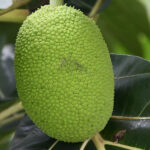Dogs are known for their curious and adventurous eating habits, which often lead them to nibble on things they shouldn’t. One of these common, seemingly harmless items that dogs frequently find in their path is the humble banana peel. While banana peels are harmless to humans and often discarded without a second thought, they can pose a potential risk to our canine companions. As a dog owner, it is essential to be vigilant about your pet’s diet and ensure they avoid consuming anything that might harm them, including banana peels.

What Makes Banana Peels Dangerous for Dogs?
Banana peels are not inherently toxic to dogs. However, their tough and fibrous nature makes them difficult for dogs to digest. This can lead to a range of health issues, such as gastrointestinal blockages, vomiting, or diarrhea. Besides, banana peels can also potentially contain trace amounts of pesticides or other harmful chemicals if they are not thoroughly washed, adding another layer of risk for dogs.
Variables that Influence the Danger of Dogs Eating Banana
The degree of danger a banana peel poses to a dog depends on the amount consumed, the type of banana, and the size of the dog.
A small bite of a banana peel might not cause any issues, but a whole peel can lead to gastrointestinal blockage, or bowel obstruction, especially in smaller dogs.1
Moreover, the type of banana matters. For instance, organic bananas usually have fewer pesticides, making their peels relatively safer compared to non-organic ones.
Lastly, the dog’s size also plays a crucial role. Smaller dogs are more prone to health risks compared to larger ones, as their digestive systems are not as robust.
Recognizing Banana Peel Poisoning in Dogs
While banana peel consumption may not directly lead to poisoning, it can cause certain symptoms that are indicative of discomfort or potential blockages. Some of the common signs to look out for include:
- Vomiting: This can be a reaction to the indigestible peel stuck in the dog’s system. The vomiting might contain remnants of the banana peel.
- Diarrhea: Again, the dog’s system might react to the peel by inducing diarrhea as it tries to expel the foreign substance.
- Loss of Appetite: Dogs who are feeling unwell, either due to blockage or general discomfort, often show a decreased interest in food.
- Lethargy: If your dog appears unusually tired or unresponsive, this could indicate a serious problem, such as a digestive blockage.
Knowing When to Call the Veterinarian
If you suspect your dog has consumed a banana peel and is displaying any signs of discomfort, it is important to remain calm and observant. Not every instance of a dog eating a banana peel will require immediate veterinary intervention, but it’s essential to understand when it’s necessary.
Start by monitoring your dog closely for symptoms such as vomiting, diarrhea, loss of appetite, or lethargy. In most cases, if the dog has consumed a small amount of banana peel, these symptoms should pass within a day or two as the dog’s system manages to expel the indigestible peel.
However, if your dog has consumed a large quantity of banana peel, or if the symptoms persist for more than 24-48 hours, it’s essential to seek professional help. This is particularly crucial if your dog seems unusually distressed, is showing signs of severe discomfort, or there’s a notable change in behavior.
In the most severe cases, where there’s a risk of intestinal blockage – usually in situations where a whole banana peel or large portion has been consumed – symptoms may escalate to include significant abdominal pain, inability to defecate, or even collapse. If your dog displays any of these symptoms, this is a clear sign of an emergency and you should contact a veterinarian immediately.
In conclusion, while banana peels aren’t typically deadly for dogs, they can lead to significant discomfort and potential health complications. The decision to seek veterinary attention should be based on the amount of banana peel consumed, the size of your dog, and the severity and duration of the symptoms. Keep in mind that when in doubt, it’s always safer to consult with a professional.
Key Takeaways: Banana Peels and Dogs
While banana peels aren’t typically deadly for dogs, they can lead to significant discomfort and potential health complications. The decision to seek veterinary attention should be based on the amount of banana peel consumed, the size of your dog, and the severity and duration of the symptoms. When in doubt, it’s always safer to consult with a professional to ensure the health and well-being of your dog.
Citations
Understanding the bowel obstruction problem, (1978).
Frequently Asked Questions About Dogs Eating Banana Peels
-
Banana peels aren’t inherently toxic to dogs, but their fibrous and tough texture makes them difficult to digest. This can lead to gastrointestinal blockages, vomiting, and diarrhea. In addition, banana peels may contain trace amounts of pesticides or other harmful chemicals if not thoroughly cleaned.
-
The potential threat of a banana peel to your dog largely depends on the size of your dog and the amount consumed. While a small bite might not cause an issue, a whole banana peel could potentially cause a blockage, especially in smaller dogs.
-
Not necessarily, but you should monitor your pet closely for any signs of discomfort, such as vomiting, diarrhea, loss of appetite, or lethargy. If these symptoms persist for more than 24-48 hours, or if your dog appears unusually distressed, seek veterinary help. However, if your dog shows signs of severe abdominal pain, inability to defecate, or collapses, contact a veterinarian immediately.



